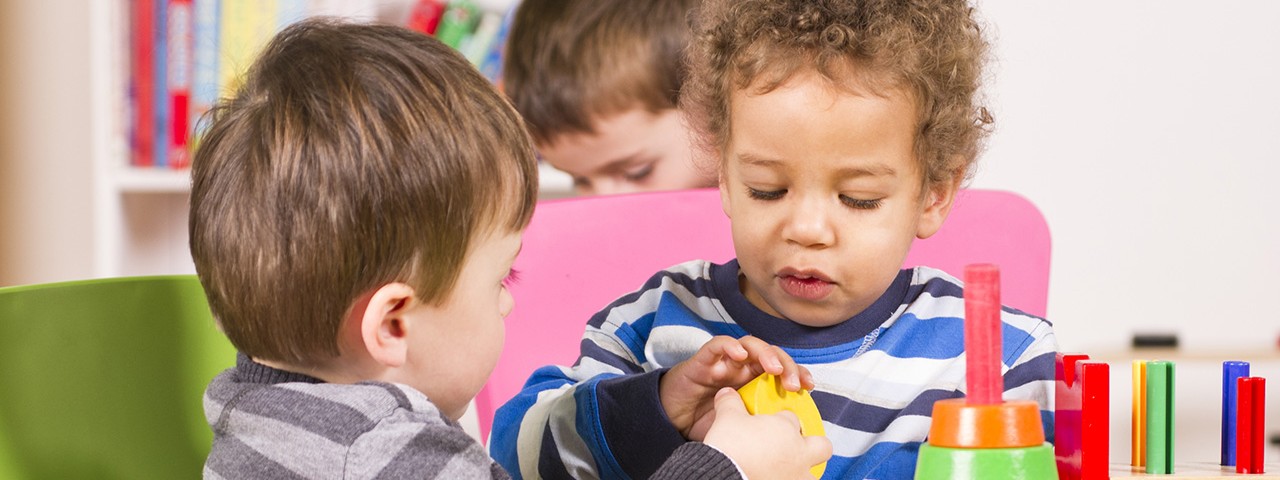Early Education Invests in Children, Future
- Tweet

As a prekindergarten teacher for Shelby County Schools, I have firsthand experience with the school readiness problem in our community. I have kids who begin the year not knowing how to spell their names, and some who don’t know a single letter of the alphabet. On the first day of school, only four of the 20 kids in my class knew what letters are and could almost write their names. Three students could talk in complete sentences; the rest were still speaking in one- or two-word phrases.
Early language skills like these are certainly important for later success, but there are other skills that kids also need when they start school. To learn in the classroom, a child needs social and emotional skills like sharing, being able to understand and follow directions and communicating effectively. As in most years, only a handful of my students had these skills when they arrived on the first day.
For some of my new students, sharing seems to be a novel concept. For the first few months each child has a zip-top bag containing an individual supply of class materials. This minimizes the fighting over crayons and other supplies. Only later in the year, when sharing is less challenging, can we have them in open buckets throughout the room.
Remembering and following simple instructions was difficult for many of them. Most could not follow three-step directions — for example, pick up this pen, place it at the end of the table, then walk around the table and back to me.
Effective communication is necessary for students to navigate their new environment. At the bare minimum, a child should be able to tell me if something is wrong, if he does not feel well, or if he needs to use the restroom. These seemingly simple interactions are challenging for many of my students.
Social and emotional skills are an important part of what my kids learn throughout the year. When we play London Bridge at recess, players who break the line have to sit out until the next round. If they misbehave during story time, they are not allowed to sit on the carpet with the rest of the group. During creative activities like painting, they are learning about rules and responsibilities, sharing, and taking care of materials.
Through activities like these, many students start to catch up; however, too many still struggle. That’s why it’s important that they’re well on their way to mastering these skills before they start school. In short, they don’t need to arrive knowing how to use crayons or scissors, but they do need to know how to share them.
I’ve taught for many years and at many schools, and my experience tells me that at most of our public schools, most kids beginning kindergarten are not socially and emotionally kindergarten ready.
We want to give our kids an education that teaches them how to analyze, evaluate, create — not just memorize and repeat. We need to take learning to the next level, but we can’t do that if we’re always playing catch-up, trying to teach them basic skills they could and should have already learned.
Even though many of my students begin the year with poor cognitive, social and emotional skills, they are excited about learning. They love being read to. They’re engaged. You can see them struggling and trying. They want to do well, but they need our help. And we’re not doing enough.
What can we do?
As parents, we need to remember that home is our child’s first classroom. Yes, we should help them become familiar with letters and numbers, but we also need to promote social and emotional development. Positive and engaged parenting is the key ingredient. Playing hide-and-seek together can be as important as sharing a book.
As a community, we need to support programs that help young children who are at risk due to poverty, troubled home environments or other negative conditions. Every fall, I see the difference that high-quality early education makes. My students who come from Head Start and high-quality day care centers start the year with the necessary skills, and continue to perform impressively.
We need to start early, with programs that serve children during their first three years, when a child’s brain is a sponge, soaking up knowledge more efficiently than at any other age.
When children arrive at preschool or kindergarten already behind, there’s a strong chance that they’ll never fully catch up. That’s a chance we can’t afford to take.
Margaret Griffith, a prekindergarten teacher at Frayser Achievement Elementary School, has taught for 11 years at numerous Memphis and Shelby County schools.
This article was originally published by the Commercial Appeal
